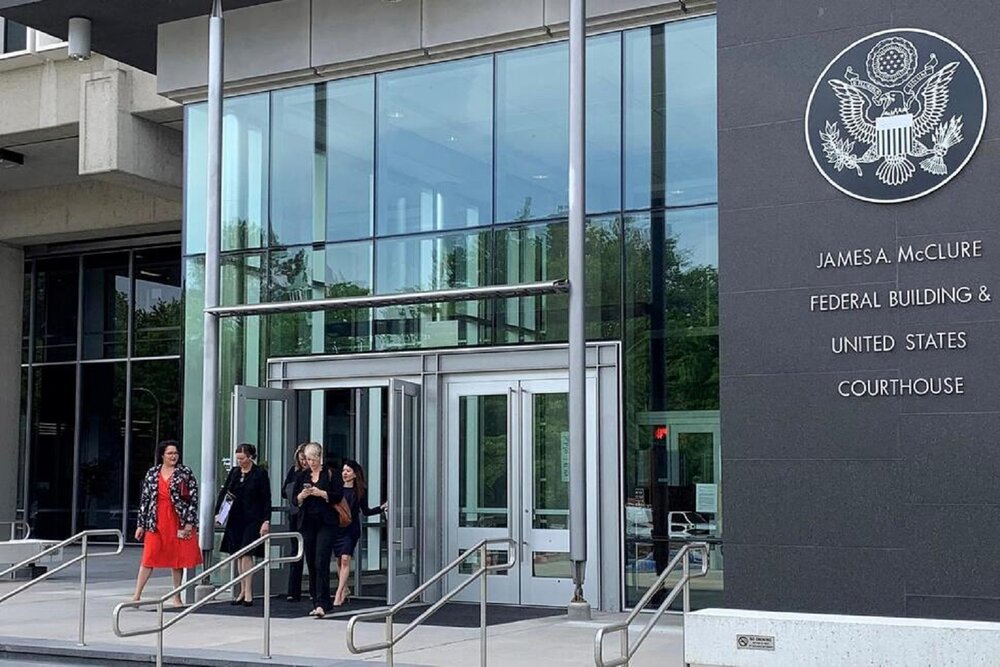Hawzah News Agency – The Idaho Supreme Court has allowed state lawmakers to intervene in a lawsuit challenging the constitutionality of a law they passed earlier this year that would ban abortions after about six weeks of pregnancy.
The court on Monday without comment approved a request by Republican House Speaker Scott Bedke, Republican Senate President Pro-Tem Chuck Winder and the Legislature to take part in the case.
The law is modeled after a Texas law enforced through lawsuits to avoid constitutional court challenges. The law had been scheduled to take effect Friday but was temporarily blocked by the court following a lawsuit by a regional Planned Parenthood organization, which called the law an “unprecedented power grab by the Idaho Legislature.”
The father, grandparents, siblings, aunts and uncles of a “preborn child” could each sue an abortion provider for a minimum of $20,000 in damages within four years after the abortion, according to the law. Rapists can’t file a lawsuit under the law, but a rapist’s relatives could.
The lawsuit was filed late last month by Planned Parenthood Great Northwest, Hawaii, Alaska, Indiana, Kentucky, which operates 40 health centers across six states. Planned Parenthood contends, among other arguments, that the law is unconstitutional because it violates the Idaho Constitution requiring separation of powers by eliminating the executive branch’s “authority and duty to ensure that the laws are faithfully executed.”
The lawmakers' request to intervene — with their own private attorneys using taxpayer dollars — noted that an analysis by the Idaho attorney general's office concluded that a court might find the then-proposed law “an unconstitutional delegation of the Governor's enforcement power to private citizens and violate the separation of powers under the Idaho Constitution.”
Lawmakers also said that when Republican Gov. Brad Little signed the bill, which had passed the House and Senate with veto-proof majorities, he inserted himself into the legal debate by writing in his transmittal letter that he feared the law's “novel civil enforcement mechanism will in short order be proven both unconstitutional and unwise."
Because of the analysis by the attorney general's office, and because the law put the Legislature in conflict with the executive branch, the Legislature should be allowed to defend the law, lawmakers argued.
Planned Parenthood's arguments challenging the constitutionality of the abortion law “directly implicate the Legislature’s authority and, further, place the Legislature in conflict with the Executive Branch and with the prior statements of the Idaho Attorney General’s office," lawmakers wrote. “Consequently, the Legislature has its own uniquely situated interests in this proceeding and, therefore, seeks to protect those interests through intervention.”
When the state is sued over its laws, it often falls to the Idaho attorney general’s office to defend the state’s views, even in cases where the attorney general’s office previously warned lawmakers that the legislation would likely be found unconstitutional. But in some cases, the Legislature has hired private attorneys to represent lawmakers’ interests in court.
The state has been sued several times in recent history after lawmakers passed laws that were found to be unconstitutional. Idaho has been on the losing end of lawsuits over abortion restrictions, laws targeting transgender residents and laws attempting to restrict resident-led voter initiatives, to name a few, ultimately costing taxpayers millions of dollars in legal fees.
In the abortion case, lawmakers said they are prepared to comply with the court's timelines, and their request to intervene wouldn't cause a delay.
The court earlier this month without comment rejected a request by the Roman Catholic Church in Idaho to intervene in the lawsuit.


Your Comment